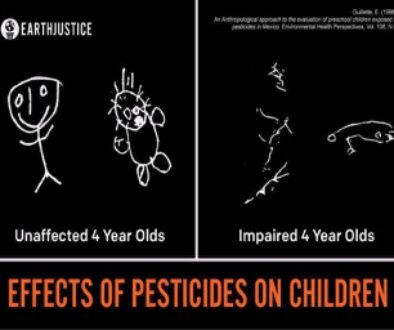The Hidden Costs and Impacts of Bisphenol A in Can Linings
By Patricia Patterson, Policy Advocacy Intern
The first time I learned about food stamps, I was six years old and starting the first grade in a new state. Our family, having just moved from Pennsylvania to North Carolina, was gradually becoming accustomed to the grocery store “giants” of the south. I formed a list in my head of all the new company names—Lowes Foods, Harris Teeter, Kroger, and Food Lion. The list sounded more like an inventory of foreign animals, set with their respective genus and species, than a compilation of grocery store names. Among the disarray of learning new street names and retail shops, I overheard my parents discussing another unfamiliar word, food stamps. I asked my father if grocers stamped our food and if the ink would get into our mouths when we ate it. Though my father laughed and assured me that we weren’t eating ink-saturated food, there were other hidden dangers in the food we purchased. We were just unaware of them at the time.
What my family, and millions of other families across the United States, didn’t know was that a dangerous chemical known as Bisphenol-A, or BPA, inhabited several packaged food and drink items, including bottled water and canned foods. This consumer ignorance was recently highlighted in a news report that aired on CBS in which reporter Steve Sbraccia discussed the hazards of purchasing canned products containing BPA. The National Institute of Environmental Health Sciences (NIH) states that “the primary source of exposure to BPA for most people is through the diet.” Presently, the U.S. Food and Drug Administration (FDA) assumes that “BPA is safe at the current levels occurring in foods” and fails to consider the long-term effects of BPA on the human body. According to a study published by Environmental Health Perspectives, BPA exposure increases estrogen sensitivity in the mammary gland, demonstrating that responses to BPA are potent in pubescent phases but most potent in prenatal stages. By assessing only acute toxicity, the FDA is choosing to ignore the neurological and reproductive effects of BPA that occur over time and harm many, especially infants and children who are most sensitive to toxins.
Today, despite the persistence of environmental organizations and the public to remove BPA from numerous products, BPA persists in the lining of several canned food items found in local grocery stores. According to a study published in 2015 by the Breast Cancer Fund, over 67% of canned food products from the 192 that were tested contain BPA. Among those tested are canned items from local retailers like Kroger and Harris Teeter. 13 out of 21 cans tested from Kroger and 2 out of 6 cans tested from Harris Teeter contained BPA.
Canned products are often more cost efficient, which may be more appealing to low income consumers or consumers who receive federal aid much like my family did. In many cases, purchasing cans is more convenient to the average, time-conscious consumer who would rather buy canned beans than boil and soak dried beans overnight. Most consumers, however, unknowingly purchase canned items that may contain BPA. My grandmother, a native to Mexico, purchases cans of pickled jalapeños from a company named Conservas La Costeña, sold in local grocery stores. My mother purchases La Costeña whole black beans. In the Breast Cancer Fund’s 2015 report on BPA, 1 out of 1 of the Conservas La Costeña cans tested and 2 out of 2 of the cans tested from their parent company Vilore Foods contained BPA.
While we may not be physically consuming “ink-stained food” like I feared when I was six years old, local grocery stores such as Kroger and Harris Teeter continue to market items that contain BPA in their can linings. In a recent study conducted by the Center for Environmental Health (CEH) from January to April 2017, 252 canned items were tested for BPA across eleven states, including North Carolina, and 38% of those cans contained BPA. Of the four major retail stores tested—Kroger, Albertsons, Dollar Tree, and 99 Cents Only—24 of the 73 canned items from Kroger, approximately 33%, contained BPA. Despite a decrease of BPA found in canned items, about a 1.8% reduction since 2015, several canned products sold in local grocery stores still contain BPA, potentially triggering endocrine disruption and other health concerns.
Those most likely to purchase canned items—and, thus, those more likely to be exposed to these toxins—are low-income or fixed-income consumers. According to a 2016 survey published by the AARP Foundation, individuals aged 50 and above that purchase canned items have an average annual income of $40,000 or less. These consumers identify their chief motives for purchasing canned products as “easy/quick preparation” and “long shelf-life.” A study published by Environmental Health Perspectives (EHP) indicates that males, individuals from rural and low-income areas, and individuals aged 50 or below have higher percentages of BPA concentration in their bodies. These individuals are also more likely to not have proper health insurance providing access to a doctor for preventative treatment. In order to reduce the toxics exposure, local grocery stores such as Harris Teeter and Kroger should aim to eliminate products containing BPA from their shelves or at least include warning labels to increase consumer awareness of these hazardous products. Regardless of whether you use food stamps to purchase food, you are hyperconscious of time, or you enjoy the ease of purchasing canned items, you deserve to know what is in your food.
Click here to view Toxic Free NC’s BPA Policy Brief!



